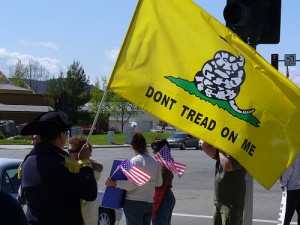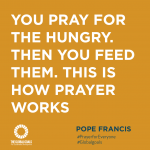Personal Racism Is Still Pervasive
We are, all of us, racists. This is a human problem, of course, the problem of “otherizing” one another. But for me, the starting place, the thing I need to deal with most is my own community, my own race, my own being. While the underlying issue of racism in America today is largely one of systemic racism, racism that pervades the systems of our society, providing unfair advantages to whites over people of other colors, this is not going to be an essay just about that.
All too often, when we want to talk about systemic racism, to be conciliatory, we say things like, “Most white people are not personally racist, but they just support systems of racism unknowingly. It’s the system, not the individuals. Most white people bear no ill will toward people of other colors and are not personally prejudiced. But that doesn’t mean society is just.”
Here’s the problem with that, though. It’s true that the systems are biased. But the more I see the pushback to the Black Lives Matter movement, the more I read history about how even peaceful protest leader Martin Luther King Jr. was treated (an outside troublemaker who was just stirring up division … sound familiar?), the more I talk to white people about race, the more I hear both subtle and NOT subtle prejudiced beliefs surface about blacks in particular (and also about other groups, such as Muslims, but that’s another discussion for another day).
There is an underlying fear of blacks that is not rational, but deeply ingrained. And I’m here to tell you that I have it too. Yes, I do. I have ideas and misconceptions and fear of the other and a million different ways I push away my black brothers and sisters. I have a visceral reaction of fear when I see a black young man on the street. I have deep heart issues that still need dealing with. We all do.
That’s where I simply DO NOT BUY IT when a white person tries to tell me they are not racist. Especially if they’re a Christian. A Christian should know better. “All have sinned and fallen short of the glory of God.” We have souls that are broken and sinful and in need of God’s daily work. And if you avoid acknowledging the need for that work, you are basically saying that you don’t need Christ, that you are righteous in and of yourself. And that, my friends, is pride.
 Patriots, Not Pinheads
Patriots, Not Pinheads
“What if you’re not a good person?” There is no room in conservatism for that in the present tense. Sure, we can say, “All have sinned…in the PAST.” But an acknowledgment of present sin is dangerous. It cuts against triumphalism. It makes me feel vulnerable and afraid and unsure of myself. I can’t acknowledge my own badness. It would kill me.
Oh, that sting of the Law’s truth! I’m not a good person. I want to run and hide from that truth. I want to silence it by any means necessary. Look over here! No, look over there! Let’s talk about black abortion! Let’s talk about black-on-black crime! Let’s talk about other people! Anything but my own badness.
This is the dilemma of conservatism. The conservative wants to be a good person, wants to be right. And so we have Donald Trump saying that he does not ask God for forgiveness. This is well in line with the worldview that conservatives love about Trump. They tell me they love that he doesn’t apologize for America. They are willing to accept that he has nothing resembling a real, vibrant Christian faith at all. At least he holds to American exceptionalism! American exceptionalism claims that America is the greatest nation of all time, in the history of the world. And because of this, it white-washes history; there are no blots! And it’s all in service of self-justification. It’s the plea of the sinner, “Tell me I’m good! Tell me I’m right!” Me, me, me. Self, self, self.
In order to maintain this mirage of rightness, the conservative must shift the focus from their own sin to that of their neighbor. And so, it is always the fault of the poor that they are poor and the oppressed that they are oppressed. In fact, they probably aren’t even oppressed; they are just making it up. “Tell me I’m good! Tell me I’m right!” I’m a patriot; you’re a pinhead.
America believes itself exceptional, the greatest and noblest nation ever to exist, a lone champion standing between the white city of democracy and the terrorists, despots, barbarians, and other enemies of civilization. One cannot, at once, claim to be superhuman and then plead mortal error. I propose to take our countrymen’s claims of American exceptionalism seriously, which is to say I propose subjecting our country to an exceptional moral standard. This is difficult because there exists, all around us, an apparatus urging us to accept American innocence at face value and not to inquire too much.–Ta-Nehisi Coates, Between the World and Me

On the Right Side of History
But lest we only pick on the conservatives, self-justification is also the great dilemma of liberalism. Here is where I struggle myself, as someone who leans liberal in most social issues (except abortion). I want to be on the right side of history. I want to be part of the great social fight for justice. I want to be a social warrior. I want to be part of the solution, not the problem. I don’t want to say the wrong thing or do the right thing. I want to be a good white person. I want to be good. Me, me, me. Self, self, self.
“But what if you’re not a good person?” There is no space in liberalism for that. The absolute imperative of liberalism is that one must be on the right side of history. We have seen the sins of our parents and grandparents and great-grandparents, their prejudices and subtle (and not-so-subtle) oppressions. We have seen the hateful speech of the right. We know those racists are out there. And so we desperately claw our way up the mountain of Progress, certain that the history books will remember us triumphantly.
When friends point out our own complicity in racism, we desperately try to accommodate ourselves to the right side of history. But our fear is thick, and our battle for change isn’t entirely about our neighbor. It’s about us. It’s focused on the self: my enrichment, my personal improvement, my desperate penance to assuage my white guilt. “Please, black neighbors, reassure me! I’m good, right? I’m one of the good guys, right?”
When we are reminded that we are not good, that we are still complicit, that we still are part of racist systems and fraught with racist ideas, we succumb to despair. And there is nothing to do but try harder. But in the end, it’s all about me. That’s exactly what Ari Laurel said. She’s tired of educating white allies and finding them still focused on themselves. It’s exhausting. It’s always all about white people.















